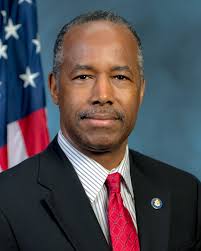
Introduction
Ben Carson, a renowned neurosurgeon and former U.S. Secretary of Housing and Urban Development, has made significant contributions to the fields of medicine and politics. His journey from humble beginnings to national prominence underscores the importance of leadership and innovation in shaping policy, particularly around healthcare. As recent developments showcase his continuing influence, understanding Carson’s role is crucial for grasping current trends in American politics and healthcare reform.
Background and Career
Born on September 18, 1951, in Detroit, Michigan, Carson faced numerous challenges during his childhood, including poverty and low academic performance. However, with the support of his mother, he overcame these obstacles, eventually obtaining a degree in psychology from Yale University and a medical degree from the University of Michigan. Carson gained fame as the director of pediatric neurosurgery at Johns Hopkins Hospital, where he performed groundbreaking surgeries, including the successful separation of conjoined twins.
Political Journey
Carson’s transition into politics began during the 2016 presidential campaign, where he emerged as a key figure in the Republican primary. Although he did not secure the nomination, his candidacy highlighted issues related to healthcare, education, and socioeconomic mobility. In 2017, Carson was appointed by President Donald Trump to lead the Department of Housing and Urban Development, where he focused on issues such as affordable housing and urban development initiatives. His tenure was marked by efforts to reform public housing and increase homeownership opportunities among minorities.
Recent Developments and Impact
In the aftermath of his political tenure, Carson remains active as a speaker and author, advocating for conservative values and emphasizing the importance of personal responsibility and education. He has also expressed support for various health initiatives, emphasizing the need for improved access to care and healthcare innovation. His influence persists in political discussions, particularly concerning healthcare reforms and socio-economic policies aimed at uplifting underserved communities.
Conclusion
Ben Carson’s unique background and experiences have significantly shaped his views on healthcare and policy. As the U.S. continues to navigate complex healthcare challenges, his insights remain relevant in discussions surrounding effective solutions. Carson’s legacy serves as a reminder of the impact individuals can have on national policy, and his ongoing involvement in public discourse will likely influence future generations of leaders in both healthcare and politics.



